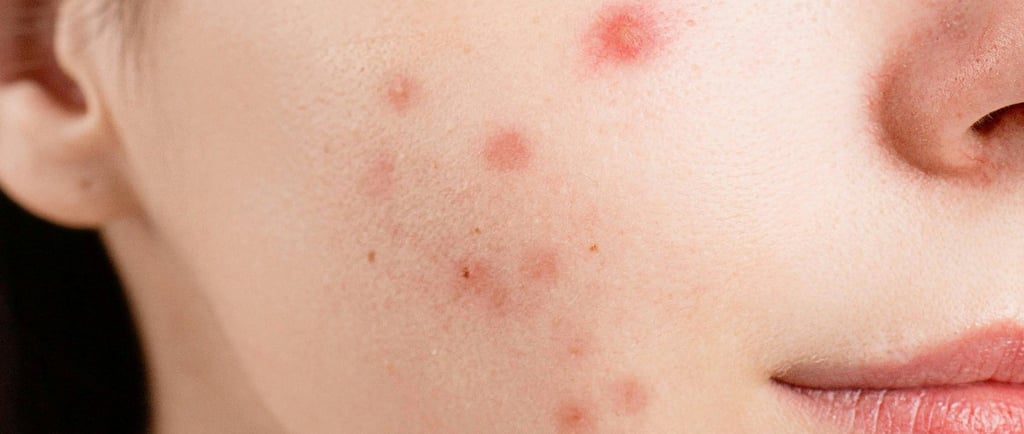Acne
Frequently Asked Questions About Acne
SKIN PROBLEMS


Acne is a common skin condition that affects millions of people around the world, regardless of age. Despite its prevalence, many misconceptions and questions persist about its causes, treatments, and prevention. In this blog, we’ll tackle some of the most frequently asked questions about acne to help you understand this condition better.
1. What Causes Acne?
Acne occurs when hair follicles become clogged with oil (sebum) and dead skin cells. Several factors contribute to this process, including:
Hormonal Changes: Fluctuations in hormones, particularly during puberty, menstruation, pregnancy, and stress, can increase oil production.
Bacteria: The skin is home to bacteria, including Propionibacterium acnes, which can multiply and cause inflammation in clogged pores.
Diet: Some studies suggest that high-glycemic foods, dairy, and processed foods may worsen acne for some individuals.
Genetics: If your parents had acne, you might be more susceptible to it as well.
2. Is Acne Only a Teenage Problem?
While acne is most commonly associated with teenagers, it can affect people of all ages. Adult acne is increasingly prevalent, particularly among women, often linked to hormonal changes or stress. In fact, many adults experience breakouts even if they didn’t have significant issues during their teenage years.
3. How Can I Treat Acne?
Treating acne effectively often requires a combination of methods, including:
Over-the-Counter Products: Don't use any over the counter products, as it may contain steroid, which initially can seemed to be effective for acne, but it causes flare up of acne known as acneform eruptions. Many patient damages their skin due to long term topical steroid abuse.
Prescription Medications: Dermatologists may prescribe topical retinoids, antibiotics, or hormonal treatments to manage more severe cases.
Lifestyle Changes: Maintaining a consistent skincare routine, reducing stress, and adopting a balanced diet can also play a significant role in managing acne.
Professional Treatments: Options like chemical peels, laser therapy, and extractions performed by a dermatologist can provide additional benefits.
4. Does Picking at Acne Make It Worse?
Absolutely! Picking or squeezing acne can lead to further inflammation, scarring, and even infection. It’s essential to resist the urge and instead focus on proper skincare and treatment options to minimize breakouts.
5. Can Acne Scars Be Treated?
Yes, acne scars can often be treated with various methods, including:
Topical Treatments: Products containing ingredients like retinoids and vitamin C can help improve skin texture and tone.
Chemical Peels: These treatments exfoliate the skin and can reduce the appearance of scars.
Microneedling: This procedure stimulates collagen production, promoting healing and reducing scar visibility. Recently microneeding with radiofrequency (MNRF) treatment is also very effective to treat acne scars.
Laser Treatments: Advanced laser therapies like fractional CO2 laser can target scars effectively, improving skin appearance.
6. Is Sun Exposure Good for Acne?
While some people believe that sun exposure can dry out acne, it can actually worsen the condition in the long run. Sun exposure can lead to increased oil production and, consequently, more breakouts. Additionally, sun damage can cause hyperpigmentation and make scars more prominent. It’s essential to use a non-comedogenic sunscreen to protect your skin.
7. Can Stress Cause Acne?
Yes, stress can trigger or worsen acne. When you're stressed, your body produces more hormones like cortisol, which can lead to increased oil production in the skin. Finding healthy ways to manage stress, such as exercise, meditation, or hobbies, can be beneficial for both your mental health and skin.
Conclusion
Understanding acne and its treatment can help demystify this common skin condition. If you're struggling with persistent acne, it’s best to consult with a dermatologist who can provide personalized advice and treatment options. Remember, patience is key—results may take time, but with the right approach, clear skin is achievable!
